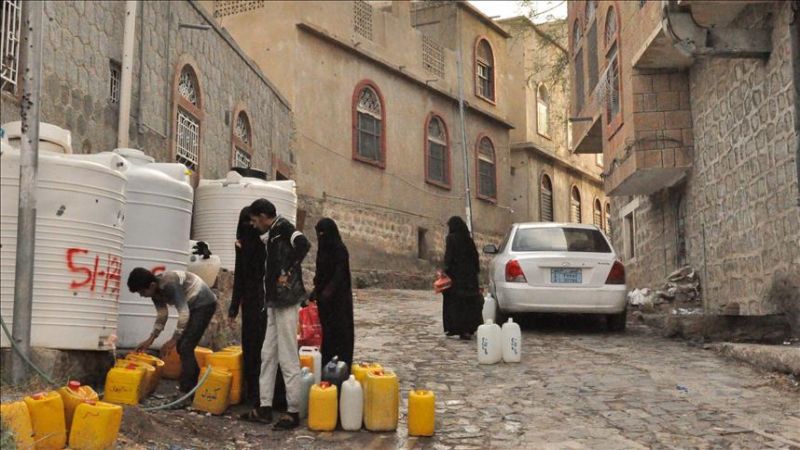
Local Editor
Residents of the war-ravaged city of Taiz, Yemen’s largest city after Sana’a and Aden, are hoping life will return to normal in the wake of a recent ceasefire deal signed between the resigned regime and Houthi Ansarullah movement.
Anadolu Agency visited Taiz’s Jahmaliyyah district, which was massively damaged in recent clashes between the two warring parties in southwestern Yemen.
Buildings have been reduced to rubble, while most residents have fled the area.
Basic needs, including water and electricity, are in short supply, while the children lack access to education.
Jahmaliyyah resident Riyad Abdullah Abdulhamid said he, along with seven relatives, had lived in the neighborhood a long time.
According to Abdulhamid, the area used to be stable -- albeit impoverished -- before the war.
Residents, he told Anadolu Agency, had borne the brunt of the crisis, including acute food shortages.
"With the outbreak of the war, our neighborhood was severely affected,” he said. “Electricity and water were cut, and due to explosives placed underground, our infrastructure and sewer system collapsed.”
“Most residents were forced to leave, as it had become a warzone,” he added.
Clashes continued to erupt intermittently, Abdulhamid said, even though government forces had gained control of the area.
"At that time, the Houthis were using our neighborhood as a headquarters,” he said. “The Houthis at one point attempted to drive Daesh from the area.”
Abdulhamid went on to urge the Turkish Red Crescent to continue sending humanitarian aid to the Yemeni people, with whom, he pointed out, Turkey had shared deep bonds since the Ottoman era.
Yemen has been dogged by conflict since 2014. The following year, Saudi Arabia and several of its Arab allies launched a massive air campaign in Yemen aimed at forcefully reinstating the resigned regime.
The campaign has devastated much of Yemen's basic infrastructure, including health and sanitation systems, prompting the UN to describe the situation as “one of the worst humanitarian disasters of modern times”.
Source: News Agencies, Edited by Website Team